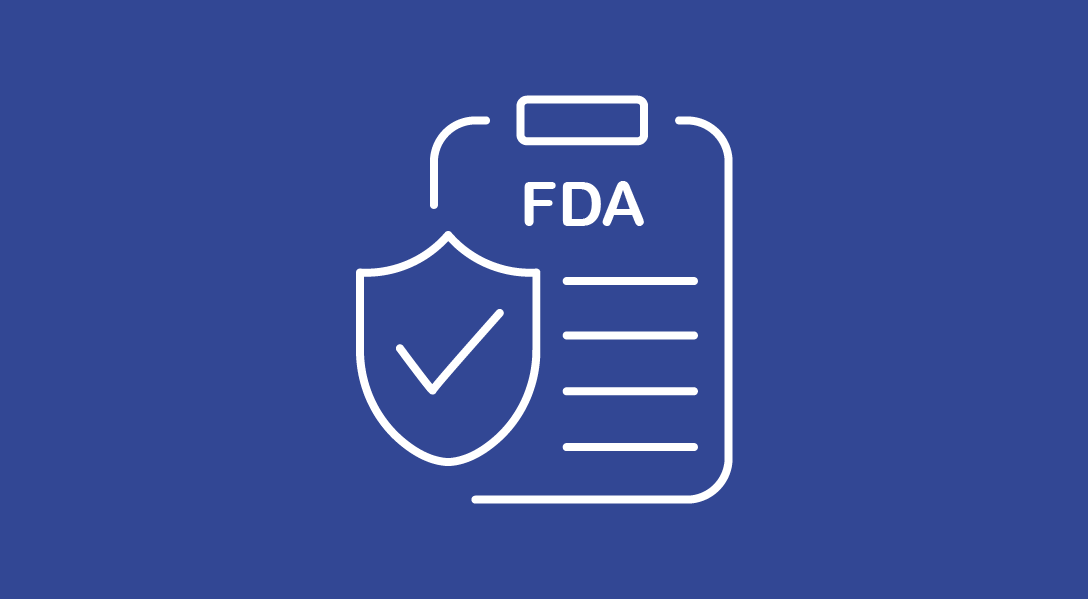Dostarlimab/Chemo Receives Priority Review to Expand Indication in Endometrial Cancer
Dostarlimab plus chemotherapy has been granted priority review from the FDA to expand its indication to all adult patients with primary advanced or recurrent endometrial cancer.
Dostarlimab/Chemo Receives Priority Review to Expand Indication in Endometrial Cancer

The supplemental biologics license application (sBLA) for dostarlimab-gxly (Jemperli) plus chemotherapy has been granted priority review to potentially expand its indication to all adult patients with primary advanced or recurrent endometrial cancer, including mismatch repair–proficient (pMMR)/microsatellite stable (MSS) disease.1
The sBLA is supported by findings from part 1 of the phase 3 RUBY trial (NCT03981796), which demonstrated that dostarlimab in combination with standard-of-care carboplatin and paclitaxel met the trial’s dual primary end points of progression-free survival (PFS) and overall survival (OS).
The Prescription Drug User Fee Act action date for the FDA decision is August 23, 2024.
“Dostarlimab in combination with carboplatin-paclitaxel has demonstrated a statistically significant and clinically meaningful improvement in OS in patients with advanced and metastatic endometrial cancer,” Mansoor Raza Mirza, MD, chief oncologist at Rigshospitalet — Copenhagen University Hospital in Denmark, said to our sister publication, OncLive®. “This new standard of care will improve the outcomes of our patients.”
Updated OS data, which were presented at the 2024 SGO Annual Meeting, showed that the dostarlimab combination (n = 245) reduced the risk of death by 31% (HR, 0.69; 95% CI, 0.539-0.890; P = .002) and elicited a clinically meaningful OS improvement vs the placebo combination (n = 249), with a median OS of 44.6 months (95% CI, 32.6–not reached [NR]) vs 28.2 months (95% CI, 22.1-35.6), respectively.2 In a prespecified exploratory analysis of the pMMR/MSS patient population, the dostarlimab arm (n = 192) achieved a clinically meaningful 21% reduction in the risk of death vs the placebo arm (n = 184; HR, 0.79; 95% CI, 0.602-1.044), with respective median OS of 34.0 months (95% CI, 28.6-NR) vs 27.0 months (95% CI, 21.5-35.6). Furthermore, in the mismatch repair-deficient (dMMR)/microsatellite instability–high (MSI-H) population, dostarlimab (n = 53) induced a median OS that was NR (95% CI, NR-NR) vs 31.4 months (95% CI, 20.3-NR) with placebo (n = 65; HR, 0.32; 95% CI, 0.166-0.629).
Regarding PFS, in the overall population, the 24-month PFS rate was 36.1% (95% CI, 29.3%-42.9%) with dostarlimab vs 18.1% (95% CI, 13.0%-23.9%) with placebo (HR, 0.64; 95% CI, 0.51-0.80; P < .001).3 In the dMMR/MSI-H patient population, the estimated 24-month PFS rate was 61.4% (95% CI, 46.3%-73.4%) with dostarlimab vs 15.7% (95% CI, 7.2%-27.0%) with placebo. In this population, dostarlimab was associated with a 72% reduction in the risk of progression or death compared with placebo (HR, 0.28; 95% CI, 0.16-0.50; P < .001).
The RUBY safety and tolerability analysis demonstrated a safety profile for dostarlimab plus chemotherapy that was generally consistent with the known safety profiles of the individual drugs.1
In July 2023, the FDA approved dostarlimab in combination with chemotherapy followed by dostarlimab monotherapy for the treatment of adult patients with primary advanced or recurrent dMMR or MSI-H endometrial cancer.4 This regulatory decision was supported by findings from the interim analysis of RUBY part 1.
Part 1 of the 2-part, global, double-blind, multicenter RUBY trial is investigating dostarlimab plus carboplatin and paclitaxel followed by dostarlimab monotherapy compared with carboplatin plus paclitaxel and placebo followed by placebo in patients with stage III or IV or first recurrent endometrial cancer who are naive to systemic anticancer therapy or experienced disease recurrence or disease progression at least 6 months after completing systemic anticancer therapy.3
Part 2 of RUBY is assessing dostarlimab plus carboplatin and paclitaxel followed by dostarlimab in combination with niraparib (Zejula) vs placebo plus carboplatin and paclitaxel followed by placebo.1 The primary end point of part 2 is investigator-assessed PFS in the overall population. Additional key end points include PFS in the pMMR/MSS population and OS in the overall population.
References
- US FDA accepts for priority review GSK’s application for an expanded indication of Jemperli (dostarlimab) plus chemotherapy to include all adult patients with primary advanced or recurrent endometrial cancer. News release. GSK. April 24, 2024. Accessed April 24, 2024. https://www.gsk.com/en-gb/media/press-releases/fda-accepts-gsk-application-expanded-indication-of-jemperli-dostarlimab-plus-chemotherapy-include-all-adult-patients-primary-advanced-recurrent-endometrial-cancer/
- Positive RUBY phase III data show potential for Jemperli (dostarlimab) combinations in more patients with primary advanced or recurrent endometrial cancer. News release. GSK. March 16, 2024. Accessed April 24, 2024. https://www.gsk.com/en-gb/media/press-releases/positive-ruby-phase-iii-data-show-potential-for-jemperli-dostarlimab-combinations-in-more-patients-with-primary-advanced-or-recurrent-endometrial-cancer
- Mirza MR, Chase DM, Slomovitz BM, et al. Dostarlimab for primary advanced or recurrent endometrial cancer. N Engl J Med. 2023;388(23):2145-2158. doi:10.1056/NEJMoa2216334
- Jemperli (dostarlimab) plus chemotherapy approved in the US as the first new frontline treatment option in decades for dMMR/MSI-H primary advanced or recurrent endometrial cancer. News release. GSK. July 31, 2023. Accessed April 24, 2024. https://www.gsk.com/en-gb/media/press-releases/jemperli-plus-chemotherapy-approved-in-us-for-new-indication/



